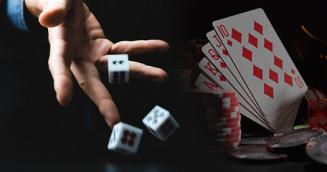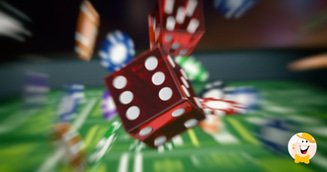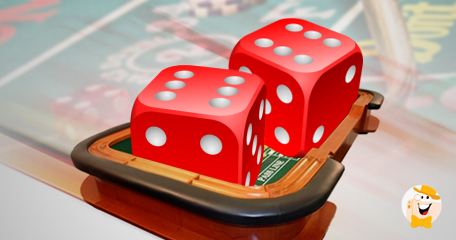
Was a pun a good way to go for the title? Probably not. Please forgive me.
I am writing this editorial slightly in advance of a huge revamp to our Craps Strategy Guide page here on LCB, which will be found here.
The new guide will replace the old one and will do the following:
1.) Outline all of the, ‘Main,’ bets available on the table.
2.) Explore the differences between land-based and online play.
3.) Highlight some of the advantages of online play.
4.) Explore a few current Craps promotions and analyze them for potential expected profit.
AND:
5.) Attempt to teach players how to use simple algebra to analyze promotions themselves in order to identify opportunities for making a profit.
Please make sure to check the link above periodically for the revamped version of the page to go live. You may not get through it in one read as it runs more than 18,000 words, but it will contain all of the Craps information that you should ever need. If you find that anything is missing, or if you have any questions that the new page fails to address, please send me a message and I will either answer you directly, modify the page to include your question or write a separate editorial about it.
With that, I do want to briefly go over some of the major mistakes that people make when playing Craps. These mistakes are not just limited to live casinos, but some betting mistakes and false beliefs may permeate the online world, as well. Hopefully you are not making any of these mistakes, but if you are, then I endeavor to prevent you from making them in the future.
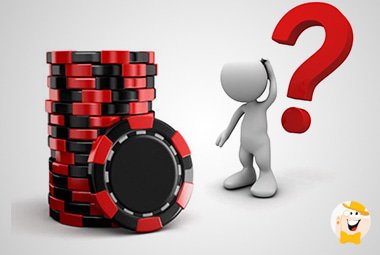
Land Casino Mistakes
Dude, Where Are My Chips?
We now have puns and dated movie references, I’m really doing a bang up job with this one. Again, I beg your forgiveness.
One of the biggest mistakes I see in Brick-and-Mortar casinos has absolutely nothing to do with betting, but has to do with the action. Namely, that mistake is paying too much attention to the action.
With so many players in such a small area, when the table is full, it can often be difficult for a player to follow everything going on the table. The problem is that the player has no responsibility whatsoever to follow all the action and payouts and should only concern himself with three things:
A.) The stickman’s call and/or dice.
B.) His/her rack.
C.) Bets that he/she has placed.
The fact of the matter is that the game of Craps can often result in many mispays at a crowded table, even with experienced crews. If it takes place that is in your favor, then whether or not you want to say anything in that situation is entirely up to you and what you can internally justify. I’m certainly not going to step in and say anything about another player getting mispaid if it benefits him/her. Further, if a mispay benefits me, I’m probably going to keep my mouth shut. (Although, if they catch it later and ask for the chip(s) back, then you should comply or you may find yourself no longer welcome at that house).
However, it can just as easily work against you as in your favor, and for those, you should be paying attention. One of the most common mispays is on a Pass Line or Don’t Pass Odds bet where the crew, trying to get pays out quickly to continue the action, may not believe that you bet as much as you actually did and could short you accordingly. Beyond that, sometimes chips just stick together or, as fallible human beings, they will occasionally make a mental error on the math.
This sort of thing happens most often if you are betting an unusual amount on the Odds bet. For example, a house may allow an Odds bet of up to 10x. That means that a player with $10 on the Pass Line may bet up to $100 on the Odds when a point is established.
For example, if a point is five or nine, true odds pay 3:2, which means that the player wants to bet any even number that is allowed (between $10-$100 in this case) and will receive 1.5x that amount if the point hits. If you are betting an unusual amount, (as most people bet 2x, 4x or 10x exactly in this sort of situation) such as $72, then the proper win on your Odds Bet would be $108 if you are successful.
Some players will often deliberately bet strange amounts on Odds bets hoping to entice the crew to make a mistake. In fact, there was a thread on Wizard of Vegas that I did some math on devoted to something very close to that subject. I’m not going to take a moral stand on whether or not I consider deliberately and actively trying to create a mispay is inappropriate, other than to say that is not something that I do.
Either way, maybe you just like to bet unusual amounts because you have a lucky number, or a weird, ‘Pressing,’ strategy. In that case, even if someone down at the other end of the table is betting $1,000 on the Pass Line with $10,000 odds and is getting $16,000 in chips handed to him on his win, you need to be focused on YOUR chips.
Furthermore, if you are the sort of person who likes to make Place Bets or bet Hard Ways, I have seen two different things happen with those.
The first one is that I have frequently seen Hard Ways not get taken down when a Soft number rolls. For example, if a player has a $1 bet on Hard Eight and the next roll is 6-2, then the player should lose that dollar and the bet comes down. The crew will occasionally miss it when this happens, especially if there is a full table, you’re the only one on the Hard Eight, and a bunch of people (yourself included) have a Place Bet on the Eight. The crew will often be focused on paying out the Place Bets and will simply forget to scoop up the losing Hard Way.
Again, whether or not you want to notify the crew is entirely up to your conscience. If I bet the Hard Ways, which I don’t, I would probably ignore the error as long as I didn’t deliberately create the error. Like I said, the responsibility is on the crew to manage the game correctly.
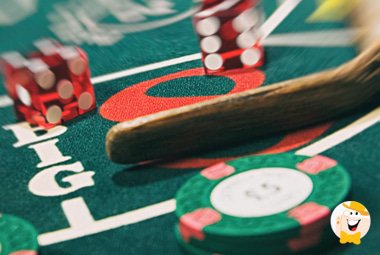
The other error that I often see is a player not getting paid on active Place Bets when a number rolls. This error is less common, but it can be very costly for a player because we are talking about not receiving an entire win. The responsibility to pay winning Place Bets is on the dealer, but sometimes the stickman/stickwoman helps out with it by tapping in front of the player and saying, “Seven Bucks,” on a winning $6 Place Bet, for one example.
Another reason I don’t have a problem not pointing out mistakes that benefit me is because the casino has surveillance on their side and can retroactively correct the mistake by asking the player for the mispaid amount back. As a player, good luck telling the crew, “Hey, I just realized that I won on a $6 Place Bet six rolls ago and didn’t get paid.” I suppose if you REALLY made a stink about it you could get surveillance to look at that, but even that is doubtful, and you will also find yourself to be a very unpopular person at that table. The best thing to do is to correct those sorts of mistakes right as they are happening. (i.e. before the dice are rolled again)
It’s also important to pay attention to your rack and keep it neat and an extremely busy table. In addition to the possibility of a person deliberately helping himself/herself to some of your chips while you are distracted, there is also the potential that you will spill your chips into another person’s rack (or the other way around) and then you have a real mess on your hands.
What I recommend is ordering your chips neatly in one or two straight lines and putting your highest denomination chips (unless they are all the same) in the middle of your rack to be bookended by low denomination chips. It will take you an extra second to get your chips ready to bet, but the added security that is afforded by someone not being able to pilfer your high-denomination chips, or the fact that any spills will only be of your low denomination chips, will be worth it. If someone is going to slide out one of your chips when you have your back turned and are watching the dice, would you prefer it to be a $1 White or a $25 Green or $100 Black? If I have to have a chip stolen at all, I prefer for it to only be a dollar.
When it comes to your rack, it is also important for you to keep track of how much is in it at all times. If you do that and there is a problem, perhaps you think someone did take some of your chips, then you will be more likely to notice it and able to report it. The faster you report it, the faster surveillance can potentially catch the issue and maybe even catch the perpetrator so they can’t do that to someone else. Although, don’t rush to blame too much. If it was the player next to you, and that player does not leave the table, it very well could have been an accident.
If it is too difficult to track your total in chips, and as someone great in math I can say that it often can be, especially when you have a ton of White and more than two denominations, then at least know how many of your big denominations you have at all times.
There are some other player errors that you can make at the Live Craps Table, but most of those pertain to etiquette which is not really the focus of this editorial. I’m mainly concerned with mistakes that could potentially cost you money.

Betting Mistakes-Land and Online
1.) Getting, ‘Rounded Down.’
Getting yourself rounded down is generally a more costly mistake in land casinos than Internet casinos simply by virtue of the amounts that it can cost you in land casinos. Getting rounded down happens when you bet an inappropriate amount, and it generally takes place on Odds bets, Place Bets or Laying Odds.
Here’s a scenario:
Imagine that the Come Out roll results in a Point of Five and you have $5 on the Pass LIne. When this happens you are supposed to take, “Even Odds,” which means that betting any even number amount will result in a payout that is a solid multiple of $1. If you accidentally make an odd amount bet on Odds, then the 3:2 payout will result in breakage.
For example, if you bet that $5 and intend to take $40 in odds, but you accidentally grab one green chip ($25) and top it with two red chips, ($10 each) then the effect is that you have made a $35 Odds bet. Based on a 3:2 payout, the Odds part of your bet should pay $52.50 if you win, but most Land Casinos do not have $0.50 chips at the Craps table, so you will end up only getting $52. You might think, “No big deal, because I still won, right?”
Wrong.
The idea behind an Odds Bet is that it has a 0% House Edge or a 100% Return-to-Player because it pays based on True Odds. If you are going to get paid anything other than True Odds, then effectively, the RTP is no longer 100%. Let’s see what the effective House Edge is because of the betting error:
There are four dice combinations that result in a five and six that result in a seven, so there are ten possible dice combinations that resolve the Odds Bet.
(4/10 * 52) - (6/10 * 35) = -$0.20
You might say, “That’s only twenty cents, no big deal,” but consider this:
You are making an Odds Bet of $35 that should have a 100% RTP, with an expected loss of twenty cents on a $35 bet, your effective house edge is now .2/35 = -0.00571428571. That means your Odds bet has a RTP of 99.42857%.
Perhaps more importantly, the expected loss of $0.20 is greater than the expected loss of your $5 Pass Line bet which is only $0.0705. With True Odds, your expected loss on the whole thing should only be $0.0705, so your effective expected loss is almost four times more than what it should be.
An interesting fact is that this gets worse the less that you are betting because the breakage is always going to be you getting $0.50 rounded off. If the same thing happened with a $15 Odds Bet, which should win $22.50 but will only win $22:
(4/10 * 22) - (6/10 * 15) = -$0.20
Your expected loss is the same $0.20, but your effective House Edge on the bet is:
.2/15 = .0133333 or 1.333%
That’s almost as high of a house edge as the Pass Line bet has in the first place.
Technically, the crew is expected to notice something along those lines so that they can correct you to prevent breakage. Of course, if you are at a very busy table, that is much less likely to be noticed. Furthermore, your dealer might just be having a bad day or not paying as much attention as he/she should even on a slow table, so always make sure you are betting correctly.
You might think it is the casino’s responsibility to ensure you don’t encounter breakage in a land casino. In some jurisdictions, the gaming regulations would agree with you, but not in all of them. At the end of the day, you made the bet and the crew is paying you the best they can.
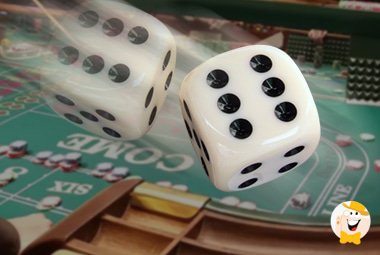
For most online casinos, anytime that you are going to suffer being, ‘Rounded Down,’ it will generally not be as bad. The reason why is that online casinos often deal in pennies or at least dimes. Either way, there is no reason to give the casino an expected profit on a bet that is supposed to have zero house advantage. For that reason, it is very important to make sure that you understand the math to never bet in a way that gets you rounded down.
2.) Not Taking/Laying Odds
The Odds Bet is the most intelligent bet on the table because it has a House Edge of 0% for a RTP of 100%. In most casinos, this is the best bet that they offer because anything better would result in an expected profit for the player and an expected loss for the casino, straight up. Rarely, some casinos will have a Video Poker game with an RTP of over 100% right off the top, but that not only requires perfect strategy but is also increasingly unusual.
The Odds Bet does increase your Variance, though, which means that you will often win or lose greater amounts more quickly. For example, at a casino with 10x Odds, you could theoretically lose $100 in four rolls playing the Pass Line with Odds.
Pass Line Bet: $5, Point is Four, Odds Bet: $50, Seven-Out (-$55)
Pass Line Bet: $5, Point is Six, Odds Bet $40, Seven-Out (-$45)
Total: -$100
For that reason, many players do not take the full amount of Odds even if it is offered. They don’t take it even if they theoretically could based on the amount in their stack.
I sometimes play negative expectation Craps for fun, and I do not Take the full amount of Odds because I only buy-in for a cheap $40-$100 and want to spend some time at the table if I am going to do that. However, it is important to Take as much in Odds as you are comfortable with.
If you look at the Pass Line with a 1.41% House Edge, then the Odds bet at least mitigates that in the sense that your total action comes in at a lower House Edge and expected loss. This is true no matter how much you take in Odds. Let’s look at three Pass Line bets vs. one Pass Line bet with 2x Odds:
Three Pass Line bets of $5 each result in a total of $15 made in Pass Line bets, the expected loss on those three bets is 15 * .0141 = $0.2115.
Alternatively, if you make one Pass Line bet, a point is established, and you make a $10 Odds Bet, then your effective House Edge on that total action is:
.0705/15 = .0047 or 0.47%. Much better.
Of course, you can only Take that Odds bet if a Point is established, so let’s look at the total House Edge (combined) based on the probability of a Point being Established:
(5 * 12/36) + (15 * 24/36) = 11.66667 (Average Total Bet)
With that average total bet and an expected Pass Line loss of .0705, your combined House Edge is .0705/11.66667 = 0.00604285541 or 0.6042855%.
As you can see, that is more than 2x less than the House Edge of the Pass Line bet alone.
Some casinos offer huge odds potential, occasionally as much as 100x Odds, so let’s see what that does to our combined House Edge:
(5 * 12/36) + (505 * 24/36) = 338.33333333 (Average Total Bet)
Now, we look at the combined House Edge given the same expected Pass Line loss of .0705, thus:
.0705/338.333333333 = 0.00020837438 or 0.020837438%
What that means is that your combined action would have a RTP of 99.979162562%.
In other words, the combined effect works out that the entire game is very close to a break-even proposition on your total action!
On the other hand, there are some players who will not take Odds, but will very happily toss out four bucks to put a dollar on each of the Hard Ways every time a Point is Established. (If they don’t have Hard Ways already). Instead of making bets with a horrible House Edge working against them, they could simply add $1 (or $2 on a Five or Nine) and have a $5-$6 Odds bet which will reduce their combined House Edge rather than increase it dramatically!
3.) Two Negatives Don’t Equal a Positive When Subtracting
There are players out there who think that combining Craps bets that each have an RTP of less than 100%, which means they have an expected loss, will somehow contribute to them winning money.
If you just read the above sentence, you already know that is nonsense. Craps is a game that should be played recreationally (unless you can identify an edge with a promotion) and is meant to be fun. It wouldn’t be Craps if the casino did not expect to win in the long run, they’d be saying, “Oh, Crap!,” instead.
In the new Craps Strategy Guide, I will detail a couple of different combinations of bets that people sometimes believe work, so we will not repeat that here. What I will do is briefly detail the most common system for Craps, known as the Martingale System.

The Martingale System
The first thing that a Craps player needs to understand is no betting system works. When you make bets that result in an expectation of losing money, then more bets accomplish nothing other than adding to the amount of money that you expect to lose. In the short run, betting systems that are intentionally designed to have a high probability of profit (small) but a small probability of losses (huge) may seem to work, but that huge loss is looming inevitably around the corner.
The Martingale System is one such system with a simple tenet: Double your bet after every time you lose, and then when you finally do win, you will be ahead the amount of your first bet.
That part is correct, but it does not change the Expected Loss and does nothing to mitigate the House Edge.
I always tell people to look at the Martingale as one bet that something will not happen, and that’s the way we will do it today. We are going to look at a four-step Martingale system. That means we will take $75 to try to win $5, but if we lose four in a row, we will give up.
I should also briefly point out that not only does the Martingale System suck, but the game of Craps (which it is most commonly applied to) is not even the best game for it. One example of a better Martingale game would be the Player bet on Baccarat, as that has a lower house edge than either of the Line Bets at Craps.
The first thing that we will note is that the probability of winning a Pass Line Bet is .4929, which makes the probability of losing .5071. With that, let’s look at the possible series’ of results and their associated probabilities:
The easiest way to do it is to treat it as a single bet, but that won’t give us any information on the average total bet. That’s okay, though, I’ll show you how to look at it as a single bet first:
Probability Loss: (.5071)^4 = 0.06612633336
Probability Win: 1 - 0.06612633336 = 0.93387366663
If you lose, then you will lose $75. If you win, then you will win $5, thus:
(0.93387366663 * 5) - (75 * 0.06612633336) = -0.29010666885
Therefore, the expected loss is $0.29010666885. If we know that the House Edge on the Pass Line is 1.41%, then we can use that to reverse engineer our average total bets based on the Expected Loss like this:
0.29010666885/.0141 = 20.5749410532 or $20.57
I guess you want me to prove that, so here we go:
If the player wins, he will stop betting and whatever the total amount that has been bet so far will be the total amount bet. That amount will also have the probability of the series working out that way attached to it, which will also contribute to the average total bets. If the player loses, unless he/she loses four in a row, then that shall not apply to the average total bets because the player is not yet finished betting.
When we say, ‘Series,’ we mean a completed series, which is either losing four in a row or winning at some point. We already know the probability for losing four in a row, so let us determine our average total bet based on the 5-10-20-40 (Total $75) series:
LOSE ALL: (75 * .06612633336) = 4.959475002
LOSE THREE, THEN WIN: (75 * .5071 * .5071 * .5071 * .4929) = 4.82059796609
LOSE TWO, THEN WIN: (35 * .5071 * .5071 * .4929) = 4.43623029812
LOSE ONE, THEN WIN: (15 * .5071 * .4929) = 3.74924385
WIN IMMEDIATELY: (5 * .4929) = 2.4645
BONUS MATH: Here’s a freebie, if you want to know the probability of each individual series ending a certain way, then all you have to do is remove the dollar amount from the above equations. The result will be the probability. The LOSE ALL one was already done from earlier with .5071^4 which is the same as (.5071 * .5071 * .5071 * .5071), so that probability is already expressed.
We will now add up all of the contributing bet totals based on the probability of that much being bet:
4.959475002 + 4.82059796609 + 4.43623029812 + 3.74924385 +2.4645 = 20.4300471162
As you can see, there is a little bit of a difference, but that is due to rounding. Now, if we look at a House Edge of .0141 and an average bet of $20.4300471162, we get an expected loss of:
.0141*20.4300471162 = 0.28806366433 or 28.806366433 cents per series.
This number is more exact, and I will explain why:
The first equation we did (overall probability of success v. overall probability of failure) truly did treat the entire thing as though it was one $75 to either lose $75 or win $5. However, we do not always bet $75 when we do win the $5. For example, if you win immediately, you will have only bet a total of $5. If you lose and then win $15. If you lose twice and win $35. Both of the other scenarios are $75.
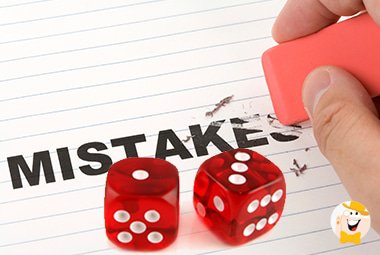
From a strictly technical standpoint, it is not one bet, it can be as little as one bet, but as many as four individual bets. The total in bets is either $5-$15-$35 or $75. That takes into specific consideration the amounts that are to be bet per series against the probability of that specific series taking place. Either way, the approximation of treating it as just one bet does serve to get us close to our correct expected loss and average bet. In other words, while the top number for average bet appears exact (just look at all those decimal places!), both it and the expected loss are actually an approximation.
In short, you only incur an expected loss on bets that have actually been made. For instance, if you lose your first two bets and then quit because the Martingale is stupid, then you will have only risked a total of $15 for an expected loss of 15 * .0141 = 0.2115 or 21.15 cents. Granted, the $35 and $75 in total bets have a greater expected loss than the average series, but that is because you are more likely to win at least once before you lose twice. Hence, the lower total expected bet than those amounts.
Conclusion:
I hope you have enjoyed reading about the things that I hope you, ‘Don’t,’ do when playing Craps. Furthermore, I would love nothing more than for you to check out the new version of the Craps Strategy Guide when it goes live as I put a ton of work into it. Besides that, I’ve also identified a profitable promotion that some of you guys might be able to take advantage of.
Thanks as always for reading, and may the dice forever roll in your favor. They won’t, but I hope that they do anyway.





